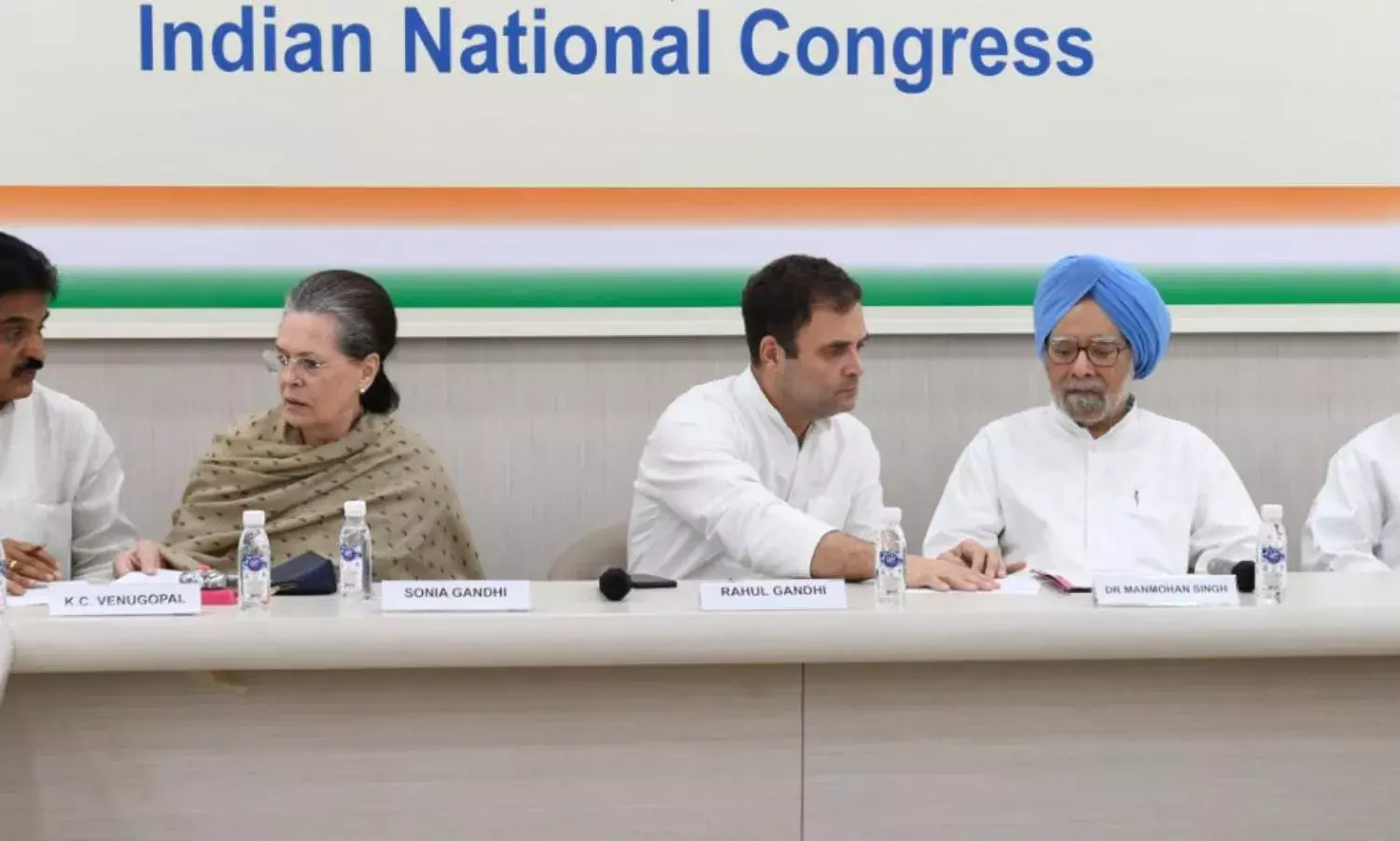Kashmir Claims Its First Political Victim - The Congress
5 reasons why
The first political casualty of the government’s action on Kashmir is the Congress party. The string holding the party up over the past years after it lost power has finally snapped. And the disintegration has begun with the First Family silent and clearly ill equipped to handle what was a not so quiet rebellion within on the issue of Kashmir.
Despite MP Shashi Tharoor’s efforts to explain this with a “they are entitled to their independent opinion” it has become clear over the past two days that the Grand Old Party has not been reduced in numbers in Parliament but has cracked from within. Rajya Sabha MP and Chief Whip of the Congress party int eh Rajya Sabha resigned altogether saying he could not be part of the party that was hell bent on destroying itself by opposing the government decision. Janardhan Dwivedi another senior leader recorded an interview expressing full support for the abrogation of Articles 370 and 35-A. Jyotiraditya Scindia followed with a tweet “this is in our country’s interest and I support this.”
All this while the Congress party was struggling to oppose the move in Parliament. And has now held a Central Working Committee meeting to endorse its position on Kashmir that has not patched the differences, or ended the confusion. For instance Congress MP Adhir Ranjan Choudhary ran into trouble with Sonia Gandhi because he wanted to know how Kashmir was an internal issue, as it was being monitored by the United Nations. Leader Manish Tiwari saw had the social media rollicking with his comparison of the government move to 50 shades of grey, even though he had spoken with utmost seriousness.
The fissures over Kashmir have virtually destroyed the party. And while senior leaders Ghulam Nabi Azad, P.Chidambaram spoke well and decisively in Parliament against the scrapping of the Articles and reorganisation of the state, it is apparent that many members who have not yet left or spoken out are convinced.
The reasons for this are not far to seek.
One, the apolitical nature of the First Family that sought to lead the Congress over the past years and its inability to come to grips with serious political issues like Kashmir. The result is that the party, amorphous at best, was left to make up its own mind on an issue that was squarely placed by the more dominant discourse in the sphere of ‘national interest’.
Two, the UPA government interventions further underlined the last by taking positions on Kashmir that were far more hardline than followed by the previous BJP government under Atal Bihari Vajpayee. Congress Prime Minister Manmohan Singh dispensed with dialogue, and Home Minister Chidambaram ran a trajectory that projected the Kashmirs as terrorists and anti-nationals. And consequent human rights violations at the time earned a reprimand from the US State Department in 2010 where a report spoke of this as did the British Parliament expressing “sadness” over the discovery of 6000 unmarked graves in the Valley.
Three, the Congress failed to develop a Kashmir policy and unlike Vajpayee who had tried to deal with the issue by appointing working groups, went back to the conventional framework of terrorism, Kashmir and Pakistan tying it up also with national interests. The members thus have been brought up on this dose, that the BJP has now taken to its logical end.
Four, the Congress without a President or a direction is highly unattractive for the politician who is left without power and without a cause. The last could have brought the party together but in the absence of a counter narrative, and now even a leadership, there is little left to keep Congress members together.
Five, the BJP over the past five years has hammered in what was the Manmohan Singh narrative on Kashmir, far more forcefully and loudly. As has been the case with the UAPA Bill which incidentally the Congress supported in Parliament, the BJP has completed what many in the Congress also believed to be necessary. There is enough in the ten years of UPA rule pointing towards this, with opportunities lost and the anti-Kashmiri narrative strengthened.
Hence, Scindia and Dwivedi have been honest to the ten years when they believed their government was on the same page as them. And had effectively loosened the fabric of unity in the state through its politics ---overtaking the BJP at one point in Jammu---to allow Union Home Minister Amit Shah to topple the edifice and bring in a new structure entirely.
Cover Photograph of the Congress Working Committee meeting today





